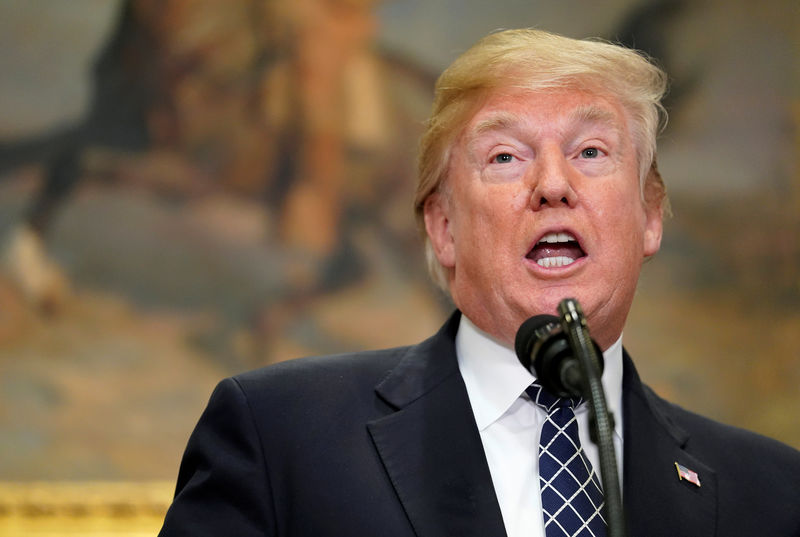By Timothy Gardner
WASHINGTON (Reuters) - A group of more than 100 bipartisan lawmakers in the U.S. House urged President Donald Trump on Friday to reconsider the omission of climate change from his administration's national security strategy, saying it is a step backward on science.
In December, a new national security strategy document dropped former President Barack Obama's description of climate change as a national security threat.
Climate will also be omitted from a Pentagon strategy document to be released later this month, an official has said.
"Failing to recognize this threat ... represents a significant step backwards on this issue and discredits those who deal in scientific fact," said the letter, a copy of which was seen by Reuters.
The letter was addressed to Trump, a Republican, and signed by 106 U.S. representatives.
The lawmakers, representing nearly a quarter of the House, said they have heard from scientists and military leaders who believe climate change is a "direct threat" to the country.
The letter was spearheaded by Representative James Langevin, a Rhode Island Democrat, who last year introduced a measure into the defense policy bill that said climate change threatens the United States. Representative Elise Stefanik, a Republican, also signed the letter.
Trump signed the defense bill in December. He has vowed to withdraw the United States from the Paris climate accord but said this week that the administration "could conceivably go back in" to the agreement.
U.S. military leaders have long been concerned about climate change. In written testimony to the Senate Armed Services Committee after his confirmation hearing last year, Secretary of Defense Jim Mattis wrote that "climate change can be a driver of instability" and "a challenge that requires a broader, whole-of-government response." The testimony was first published by ProPublica.
Retired top U.S. military officers and former national security officials have said storms, droughts and floods made more intense by climate change can be a burden on the Pentagon by fueling unrest in unstable countries and boosting the need for humanitarian missions.
The U.S. military also faces risks from climate a few hours' drive from the White House. The main road to the U.S. Naval Station in Norfolk, Virginia, the world's largest naval base, experiences chronic flooding, and electric and water utilities supporting it are threatened during frequent flooding.
Other Republicans signing the letter included Representatives Carlos Curbelo, Ryan Costello and Brian Fitzpatrick.
The White House did not immediately return a request for comment on the letter.
